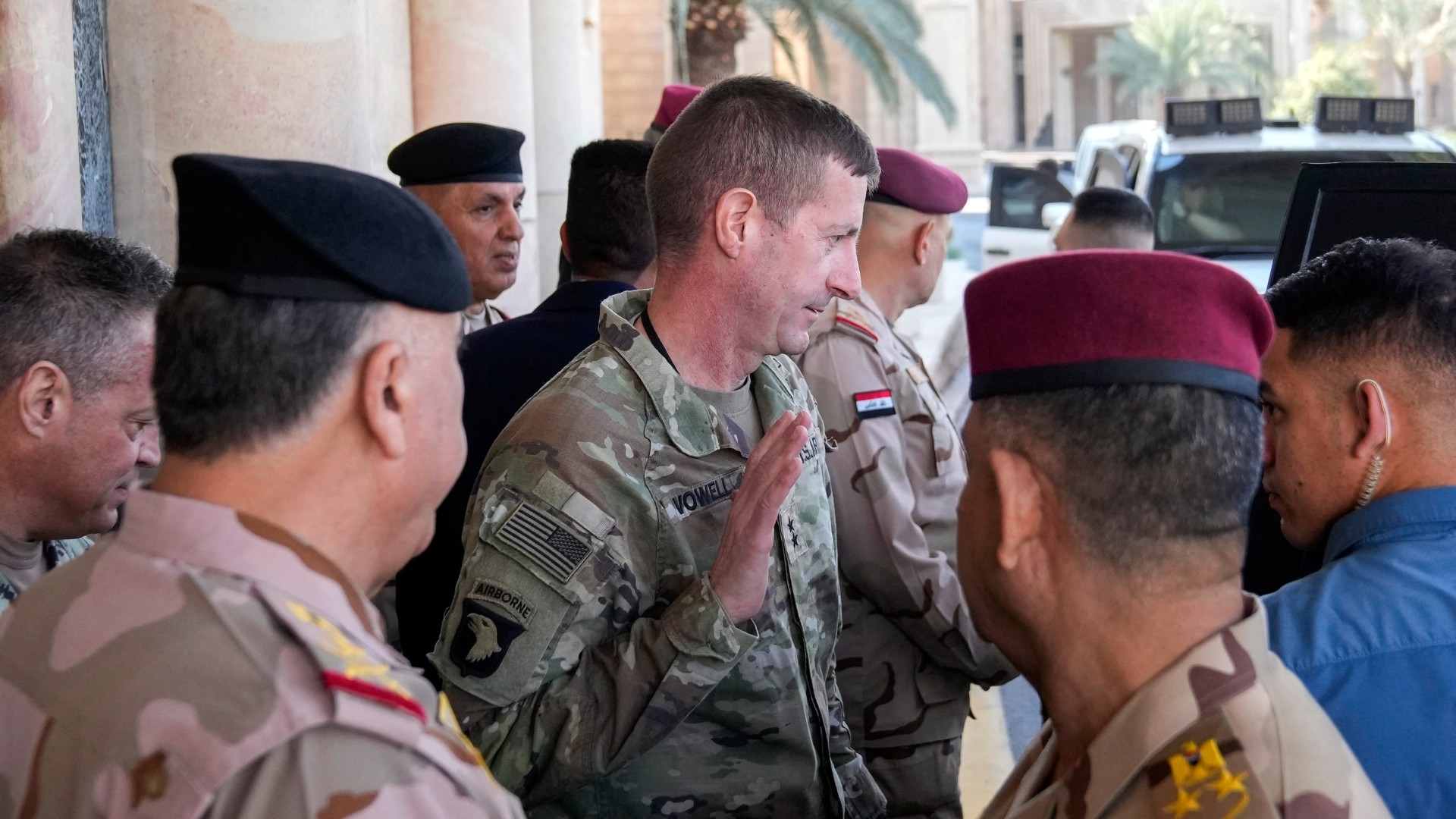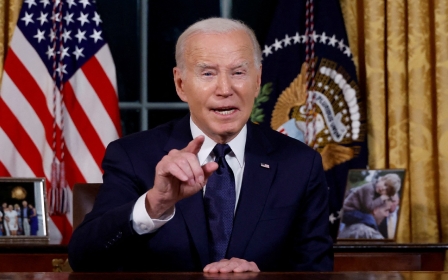Five American soldiers wounded in attack on US base in Iraq

A rocket attack against US and coalition forces at Al-Asad air base in Iraq wounded at least five soldiers, US defence officials have said.
“We can confirm that there was a suspected rocket attack today against US and Coalition forces at Al-Asad Airbase, Iraq,” the official said. “Initial indications are that several US personnel were injured. Base personnel are conducting a post-attack damage assessment.”
The Iraqi military said in a statement that a vehicle carrying rockets was intercepted by the Iraqi military on Monday after the attack and that two rockets were launched from the vehicle in the Haditha district, with eight more being prepared for launch.
The US has around 2,500 soldiers deployed in Iraq as part of a mission to prevent the resurgence of the Islamic State militant (IS) group.
One of the wounded military staff was reportedly seriously injured in the attack.
New MEE newsletter: Jerusalem Dispatch
Sign up to get the latest insights and analysis on Israel-Palestine, alongside Turkey Unpacked and other MEE newsletters
"The United States condemns the attack on the Al Asad base yesterday. Our hearts go out to the service members who were injured, and we are hoping for a speedy recovery," White House spokeswoman Karine Jean-Pierre told reporters on Tuesday.
While it is still not confirmed who fired the rockets, the US Defence Department late on Monday blamed Iran-aligned groups for the attack, calling it a “dangerous escalation”.
After last week's high-profile Israeli assassinations of senior Hezbollah commander Fuad Shukr and top Hamas political official Ismail Haniyeh, the Middle East is bracing for a possible show of force between Israel and the "axis of resistance" - an anti-Israel alliance, including Yemen's Houthis, Hezbollah in Lebanon and various Shia paramilitaries in Iraq and Syria.
Iran has blamed Israel for Haniyeh's assassination, who was killed by a projectile fired at his room in Tehran, but Israel has not claimed responsibility.
After Haniyeh's killing, senior Hamas official Khalil al-Hayya told reporters that neither Hamas nor Iran was seeking a regional war but the killing needed to be avenged.
Iran has said the US bears responsibility for the assassination of Haniyeh because of its support for Israel.
Tit-for-tat
Since the start of Israel's war on Gaza in October, members of the axis of resistance have repeatedly attacked Israel as well as US forces in the region, in what they say is in solidarity with the Palestinians in Gaza.
Yemen's Houthi and Iraqi paramilitaries have fired rockets and drones at Israel, and disrupted shipping along the Red Sea, targeting ships the Houthis say are Israeli-linked.
Hezbollah has been engaged in continuous, low-level clashes along the Lebanese-Israeli border that have nonetheless been escalating for months, sparking fears of a war between Israel and Hezbollah. Since 7 October, there have been over 4,400 rocket, missile, and other stand-off attacks by Israel and Hezbollah combined.
In April, Iran staged a massive drone and missile attack on Israel after an Israeli strike on the Iranian consulate in Damascus killed seven people, including a commander and his deputy.
The US, in turn, has repeatedly targeted sites in Iraq and Syria used by Iran and its proxy forces in retaliation for attacks on American forces in the region. Last December, Iraq-based paramilitary Kataib Hezbollah targeted a US military base in northern Iraq, wounding three American military personnel, including one critically.
In response, US forces targeted Iran-backed sites in Iraq, killing one member of pro-Iranian forces and wounding 20 people, including civilians.
The largest attack took place in January this year when a drone attack by another Iraq-based paramilitary, Islamic Resistance, on an American base on the Jordanian-Syrian border killed three US soldiers and injured dozens. President Biden branded the attack as “despicable” and said Iran was ultimately responsible.
Retaliatory strikes on 85 individual targets, according to US defence officials, ensued.
The increased attacks on Iraqi soil within the context of the war on Gaza, perceived by Iraq as US aggression against its territory, have accelerated demands for a withdrawal of troops from Iraq and an end to US military presence in the country.
In January this year, Iraqi Prime Minister Mohammed Shia al-Sudani met with top-ranking officials from both the Iraqi armed forces and the US-led coalition to discuss a timeline for reducing US military presence, but no concrete plans have yet to be announced.
Middle East Eye delivers independent and unrivalled coverage and analysis of the Middle East, North Africa and beyond. To learn more about republishing this content and the associated fees, please fill out this form. More about MEE can be found here.


